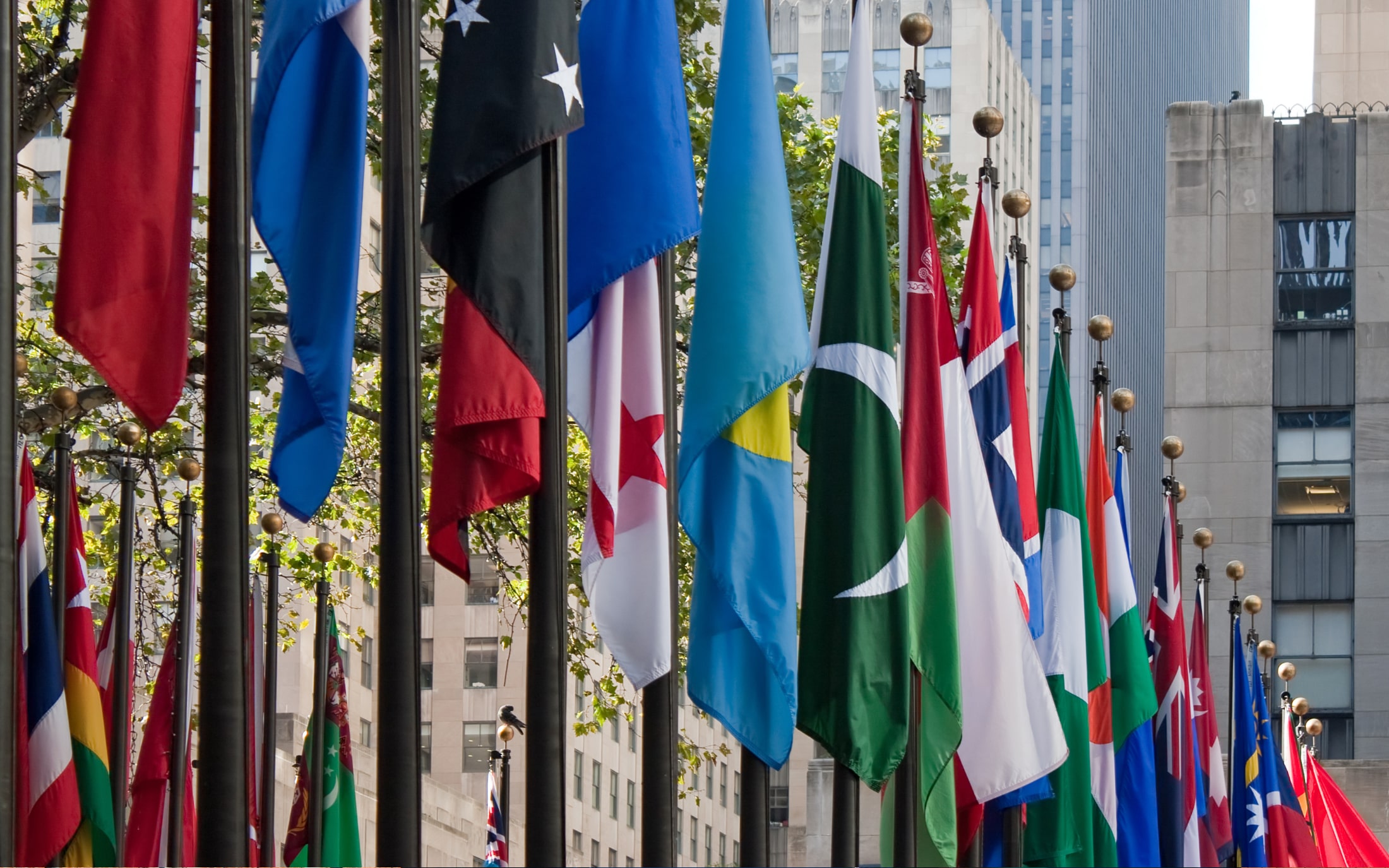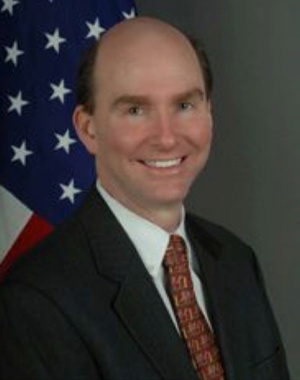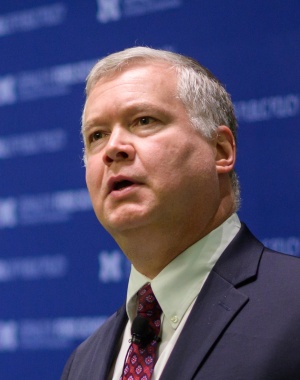
As the spring semester came to a close in April 2022, Ford School students pursued international public policy interests around the world. In total, the Weiser Diplomacy Center (WDC) and International Policy Center (IPC) funded 16 summer internships—including ten undergraduates and six master’s students—nearing pre-pandemic levels of support. Ford School faculty and staff helped students find the right fit at organizations such as the U.S. Department of State, the Center for Strategic and International Studies, the Council on Foreign Relations, and policy organizations with established Ford School partnerships.
As a research intern at the Center for Strategic and International Studies (CSIS) Economics Program, Julia Fadanelli (BA ‘23) supported policy analysis focused on the Indo-Pacific region and practiced her research and communication skills. Fadanelli also wrote her own blog post, “China’s Demographic Trends in the Context of Economic Competition,” published on CSIS’s New Perspectives on Asia blog, which highlights the work of junior CSIS staff and broadens policy discussions by bringing in new perspectives. Fadanelli reports she gained a deeper understanding of foreign policy, a renewed love for learning, and confirmed her interest in a foreign policy career with an emphasis on East Asian Studies.
“There are so many things in the foreign policy sphere that I didn’t think I was qualified for or didn’t think I’d be interested in. But, just by talking to my colleagues, it opened the door to realize that’s an option for me,” she explained. “This is something I’ve been interested in for so long, and I can make a career out of it. That was a really comforting thought to have.”
Sarah Godek (MPP ’23) interned at the Asia Society Policy Institute (ASPI) Center for China Analysis where she created news briefs, drafted social media posts, and created memos to inform the Asia Society’s media appearances, interviews, speeches, and ongoing research projects. “I absolutely loved the varied nature of my work,” she said about her internship. “I think it is very important to see many different facets of China in order to be able to better understand the country and the ways in which various domains are connected."
Rachel Greenspan (BA ’23) served in the Secretary’s Office of Global Women’s Issues at the U.S. Department of State, where she worked with the Gender-Based Violence and Cross-Cutting Issues team. Greenspan was tasked to help edit the forthcoming 2022 update of the U.S. Strategy to Prevent and Respond to Gender-Based Violence Globally. She wrote a blog post on the issue titled, “In Pursuit of Gender Equality: The High-Level Political Forum and Sustainable Development Goal 5,” that was posted on the U.S. Department of State’s website and social media accounts.
Ayla Kaufman's (BA ‘24) summer internship with the U.S. State Department also solidified her desire to work in the Foreign Service. She spent the summer working at the U.S. Embassy to Libya, which is in Tunisia due to political and security risks. This unique situation gave Kaufman the opportunity to pursue her interest in conflict resolution and humanitarian crisis management.
She was able to work on public affairs, media engagement, and cultural and educational programming. During Kaufman’s internship, she created an Alumni Engagement Strategy for the embassy to stay connected with the Libyans they sponsor for study and training programs in the United States. This project required multiple undertakings – Kaufman planned alumni events and social media strategies, organized an Alumni Volunteer Leader Council, and supported exchange program participants broadly.
“The biggest thing I left with was a better understanding of foreign policy – even just understanding what a policy is. It’s so hard to understand what that means without working in government and understanding how an embassy operates,” Kaufman said. “My internship just confirmed that I’d like to work in public service, conflict resolution, and humanitarian crisis management.”
“The funding that I got from WDC enabled me to experience Tunisia without having to stress about financial concerns,” Kaufman said. “It’s challenging to do any unpaid internship, but especially when it’s abroad so you have that financial backing. I could then delegate my financial resources to just experiencing the country, which was really the greatest gift.”
Christian Neubacher (MPP ’23) interned within the Migration, Environment, Climate Change, and Risk Reduction (MECR) division at the United Nations’ International Organization for Migration (IOM). Working remotely, Neubacher worked on several projects, including creating factsheets about various countries and their policies related to migration, environment, and climate change. Neubacher also wrote a blog post, “Three Imperatives for ensuring integration of indigenous youth when moving in the context of climate change, environmental degradation, and disasters,” published by IOM Environmental Migration. Additionally, he was responsible for finding connections between migration and climate change in the Intergovernmental Panel on Climate Change annual report, drafting talking points for stakeholder meetings, and providing webpage and social media support.
In addition to internship funding, Ford students have benefited from Ford School faculty guidance and connections. One such student is WDC fellow Radhika Arora (MPP ‘23). As part of her Rangel International Affairs Fellowship, she receives tuition support, summer internships on Capitol Hill and a U.S. Embassy overseas, mentorship, and a placement with the U.S. Department of State. Arora credits the guidance of Ford School faculty, including former Ambassador Daniel Shields, who helped confirm for her that an internship in the U.S. Embassy in South Korea would be a good fit. While in Seoul, she met with former Deputy Secretary of State and WDC Policymaker in Residence Stephen Biegun. Her experience in South Korea bolstered her understanding of embassy operations and of the unique rewards and challenges that a diplomatic career can bring.
At the embassy, Arora worked on educational, cultural, and outreach projects. She was also able to interact with high-level American officials visiting South Korea, including President Biden. In Biden’s first visit to the country as president, he met with South Korea’s newly inaugurated president and government.
“The visit welcomed a new leader, reaffirmed the deep relationship between the U.S. and the Republic of Korea, and established plans for what the future could look like in terms of economic cooperation, security, and achieving a free and open Indo-Pacific,” Arora said. “It was really great to jump right into supporting that visit – the first of many visits that summer from a variety of high-level government officials, which further underscored the importance of the U.S.-ROK partnership from a foreign policy perspective.”
The Weiser Diplomacy Center and International Policy Center also supported the following undergraduate students this summer:
- Sophie Clark (BA ‘23), Council on Foreign Relations - International Institutions & Global Governance Program
- Michael Deeter (BA ‘23), The Charcoal Project
- Sharifa Doudi (BA ‘23), Diversity, Equity, and Inclusion Team, CARE
- Hailey Shephard Espinosa (BA ‘23), The Millennium Project
- Will Kielm (BA ‘23), Center for European Policy Analysis
- Rei Kubota (BA ‘24), PHP Institute, Inc.
- Lauren Peng (BA ‘23), United States Heartland China Association
And the following graduate students:
- Young Chan Lim (MPP ‘23), Trust for Social Achievement
- Eleni Daughters (MPP ‘23), Office to Monitor and Combat Trafficking in Persons, U.S. Department of State
- Jillian Mammino (MPP ‘23), Bureau of Oceans and International Environmental and Scientific Affairs, U.S. Department of State
- Aissa Wandarama (MPP ‘23), Humanitarian Affairs Team, CARE

